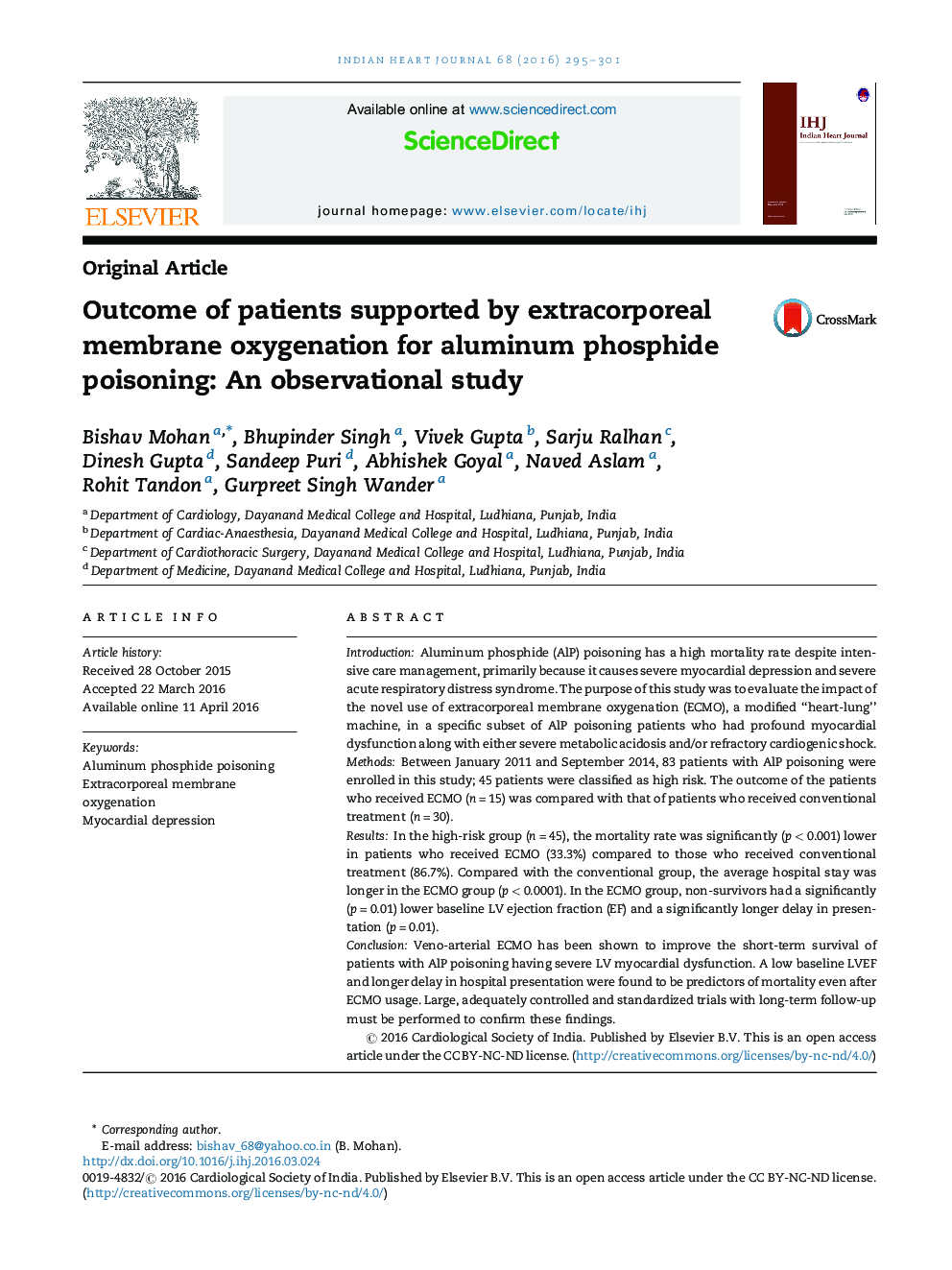| Article ID | Journal | Published Year | Pages | File Type |
|---|---|---|---|---|
| 2927387 | Indian Heart Journal | 2016 | 7 Pages |
IntroductionAluminum phosphide (AlP) poisoning has a high mortality rate despite intensive care management, primarily because it causes severe myocardial depression and severe acute respiratory distress syndrome. The purpose of this study was to evaluate the impact of the novel use of extracorporeal membrane oxygenation (ECMO), a modified “heart-lung” machine, in a specific subset of AlP poisoning patients who had profound myocardial dysfunction along with either severe metabolic acidosis and/or refractory cardiogenic shock.MethodsBetween January 2011 and September 2014, 83 patients with AlP poisoning were enrolled in this study; 45 patients were classified as high risk. The outcome of the patients who received ECMO (n = 15) was compared with that of patients who received conventional treatment (n = 30).ResultsIn the high-risk group (n = 45), the mortality rate was significantly (p < 0.001) lower in patients who received ECMO (33.3%) compared to those who received conventional treatment (86.7%). Compared with the conventional group, the average hospital stay was longer in the ECMO group (p < 0.0001). In the ECMO group, non-survivors had a significantly (p = 0.01) lower baseline LV ejection fraction (EF) and a significantly longer delay in presentation (p = 0.01).ConclusionVeno-arterial ECMO has been shown to improve the short-term survival of patients with AlP poisoning having severe LV myocardial dysfunction. A low baseline LVEF and longer delay in hospital presentation were found to be predictors of mortality even after ECMO usage. Large, adequately controlled and standardized trials with long-term follow-up must be performed to confirm these findings.
